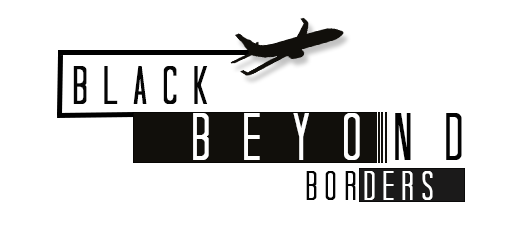This IS Something For Us
“This ain’t something for us.”
I looked up in surprise. “What do you mean?” I asked Tony, the dark-complexion brother who declared this statement. He was the first African American I met on the very first day of my voyage.
He looked me in the eye. “You know what I mean. This voyage. This whole thing is something for white people. Black people don’t do this sort of thing,” he concluded.
I thought for a moment, and then smiled, shaking my head.
“How can you say that?” I asked. “I know exactly what you mean, yet you and I are going on this voyage. We can’t maintain a mentality like that. Even though this journey isn't something black people used to do in in the past, it needs to be something we do in the future. The next generation of black youth needs to see this as the expectation, not the exception.”
Tony looked at me and grinned. “You got a point, brother.”
The conversation took place on January 5th, my first day aboard the MV World Odyssey. The day before my departure I hurriedly packed, embarked on exhausting six hour flight from Atlanta to San Diego, and crashed at The Hilton Bayfront Hotel for a few hours only to wake up at 8:00am to catch the bus to Ensenada, Mexico--our embarkation point. I was surrounded by people who looked nothing like me, and I would soon lose all forms of electronic communication. As I came closer to beginning my journey abroad, my doubts and fears intensified. I feared I would not be accepted. I feared that I would be trying to fit in where I did not belong. I feared what Tony voiced, that this type of thing was not for people like me.
Yet, from the moment I stepped onto the ship, I knew that this was for me. In just a few days time, I’ve met students from Mexico, Israel, Denmark, China, Sweden, Puerto Rico, Cuba, Nigeria, South Africa, Ethiopia and countless other countries around the world. Though many of the American students initially banded together based upon geographic location and similar ethnic backgrounds, my international peers seemed to show such openness to cultural differences.
We’ve created bonds through interactions as simple as playing card games, singing and just talking about life. The faculty have been excellent as well, and provide thought-provoking lessons that spark engaging conversations even after class ends. I recently ate lunch with my World Religions professor. We discussed both Noah’s Ark and the principles of Buddhism while enjoying a pristine view of the Pacific Ocean. Even still, the professors, or lifelong learners as I’d like to call them, still enjoying acquiring new knowledge as adults. Most are over fifty years old who simply want to join our journey. I’ve had incredible conversations over dinner, which have become incubators for candid discussions. The lifelong learners share their insights, wisdom and world travels with my friends and myself.
Though much of my initial experience has incredible, I soon learned was that seasickness is a very real phenomena. For the first two days of my voyage I felt sick in bed and had a pounding headache. I hated the sea swells and couldn’t stand looking out of the window to watch the constant rise and pitch of our ship. Medicines and some extra sleep took care of most of it, and in a few days I was feeling much better. Still, seasickness was an unexpected struggle considering that I was free to move around, stretch and had access to lots of food and water.
My experience with seasickness triggered a deep reflection into my ancestral knowledge. I began to wonder… if seasickness is this challenging for a pampered passenger like myself, how must an oceanic voyage have been in chains? The more I thought about it, the more I began to realize that, in essence, I was journey could be similar to a reverse Middle Passage. The transatlantic slave trade went from the East to the West. My journey travels from the West to the East. Although I am not enduring grueling pain and fearing my life, I now understand what it means to be away from family, working through life’s difficulties on your own. My ancestors were forced on a ship as merchandise and slaves. I am traveling on a ship as a passenger and as a student.
It is truly humbling to recognize that over two hundred years ago my ancestors were on a similar ship, but on an entirely different journey. Rather than inspiring a sense of awe and wanderlust, the voyage instilled a sense of dread and panic. Instead of marveling at glorious sunrises and peaceful waves in the Pacific Ocean, my ancestors were locked in the belly of a beast in the middle of the Atlantic Ocean, covered by overwhelming darkness, putrid smells, and death. I can hardly imagine what strength and fortitude it took to survive that horrid journey. Yet, many did.
Often, African Americans look down on our cultural origins as chains, yet we need to assert pride in the perseverance exhibited by our forbearers. Remembering my ancestors perseverance encourages me to push onwards, despite my fears, in honor of their memory.
